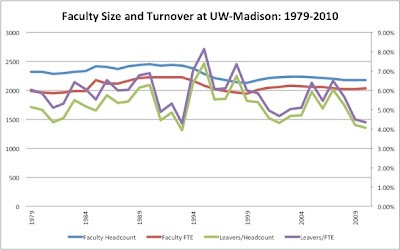The Travesty at UVA-- Commentary from Judith Burstyn
Today I welcome guest blogger Judith Burstyn , professor of chemistry and former chair of the University Committee at UW-Madison. She has a short commentary in today's Chronicle of Higher Education, and with her permission, I am printing the entirety of that piece here. Judith was a faculty leader in the battle over the New Badger Partnership , and remains a key player in the efforts to preserve shared governance on our campus. Apparently, at today’s University of Virginia, business values trump all. There is a troubling recent trend toward viewing all public institutions in market terms, where value is measured by dollars produced. In recent years, UW-Madison has felt this too, as some of our leaders focus on efficiency via new “flexibilities.” But universities are not businesses. The proper role of universities is the creation of knowledge for the public good, and education of the new generations of citizens and leaders for civil society. Business management approaches ar...
